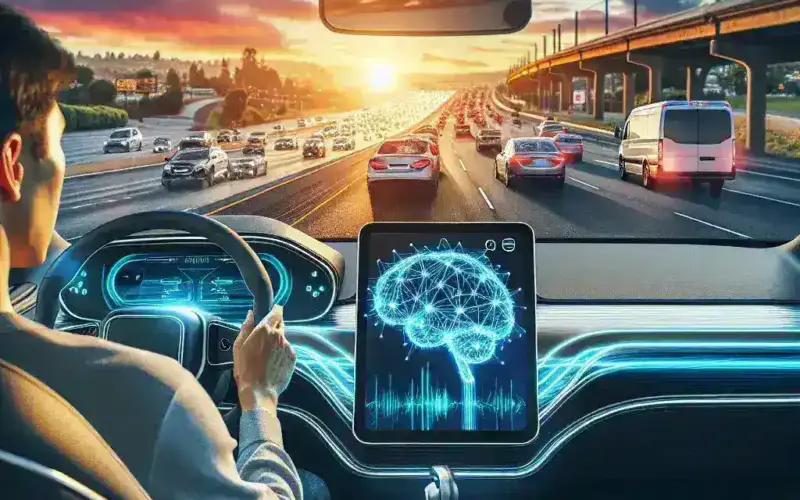Tesla’s Adaptive AI Safety Coaching: A Revolutionary Step for U.S. Drivers
In an era where automotive technology is evolving at an unprecedented pace, Tesla once again sets the bar high by introducing its adaptive AI safety coaching system for U.S. drivers. This groundbreaking initiative aims to not only enhance driving skills but also promote safety on the roads. In this article, we will delve into the details of this innovative system, explore its historical context, weigh its pros and cons, and predict the impact it may have on the future of driving.
The Historical Context of Tesla’s Innovations
Since its inception, Tesla has been a pioneer in the electric vehicle (EV) market, blending cutting-edge technology with sustainability. With the introduction of features like Autopilot, Tesla has consistently pushed the envelope in terms of what is possible in automotive safety and efficiency. The company has utilized machine learning and artificial intelligence to not only create smarter vehicles but also to develop systems that assist drivers in becoming better and safer.
Understanding Adaptive AI Safety Coaching
The adaptive AI safety coaching system is designed to provide real-time feedback to drivers based on their driving behavior. Utilizing advanced algorithms and data analytics, the system can assess various aspects of driving, including speed, braking patterns, and even the driver’s overall attentiveness. This intelligent feedback mechanism helps drivers make adjustments to their driving habits, promoting a safer driving experience.
How It Works
- Real-Time Monitoring: The system monitors the driver’s actions continuously, collecting data on their driving patterns.
- Feedback Mechanism: Using this data, the AI provides immediate feedback through visual and auditory cues, guiding the driver toward safer practices.
- Personalized Coaching: The system adapts to each driver’s unique habits, offering tailored advice that evolves as the driver improves.
Pros and Cons of the Adaptive AI Safety Coaching
Pros
- Enhanced Safety: With real-time feedback, drivers can correct unsafe habits, potentially reducing the accident rate.
- Skill Improvement: The personalized coaching approaches foster a culture of continuous improvement among drivers.
- User-Friendly Interface: The integration of this feature into Tesla’s existing infotainment system ensures an intuitive user experience.
Cons
- Over-Reliance on Technology: Some drivers may become too dependent on the AI, neglecting to develop their own skills.
- Privacy Concerns: Continuous monitoring raises questions about data privacy and how that data is used.
- Cost Implications: While Tesla aims to make safety accessible, the technology may contribute to overall vehicle costs.
Real Examples and Cultural Relevance
To illustrate the potential impact of Tesla’s adaptive AI safety coaching, consider the story of a young driver named Emily. As a new driver, Emily struggled with maintaining a safe distance from other vehicles. After activating the AI coaching system in her Tesla, she received real-time suggestions on how to manage her speed and distance more effectively. Over time, Emily’s confidence grew, and she became a safer, more responsible driver, embodying the positive cultural shift towards safety in driving.
Statistics That Matter
The National Highway Traffic Safety Administration (NHTSA) reports that more than 38,000 people die in motor vehicle crashes each year in the United States. The potential for technology like Tesla’s adaptive AI safety coaching to reduce these numbers is significant. Studies have shown that personalized driving feedback can lead to a 20-30% reduction in risky driving behaviors.
Future Predictions: The Road Ahead
As Tesla continues to innovate, we can anticipate a future where adaptive AI coaching becomes a standard feature not just for Tesla vehicles, but for all cars. With advances in technology, the integration of AI-driven safety coaching could evolve to include features such as autonomous driving adaptations, emergency braking systems, and even predictive analytics that foresee potential hazards.
Conclusion: Embracing the Future of Driving
Tesla’s introduction of adaptive AI safety coaching for U.S. drivers represents a monumental shift in how we approach driving safety. By leveraging cutting-edge technology to provide real-time feedback, Tesla is not only enhancing the driving experience but also fostering a culture of safety and responsibility on the road. As we look forward to the widespread adoption of this technology, it is essential for drivers to embrace these advancements, ensuring that safety remains at the forefront of our driving culture.

